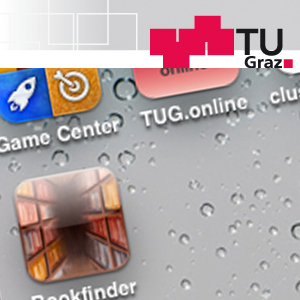Beni gives a presentation about our publication for EFEPLE11 Workshop on „Survival of the Fittest – Utilization of Natural selection Mechanisms for Improving PLE“ – here are the slides:
[GADI 2011] ICT in Drittländern und Zukunftsprognosen

 Der vierte Termin der heurigen Vorlesung „Gesellschaftliche Aspekte der Informationstechnologie“ an der TU Graz besteht aus folgenden Vorträgen:
Der vierte Termin der heurigen Vorlesung „Gesellschaftliche Aspekte der Informationstechnologie“ an der TU Graz besteht aus folgenden Vorträgen:
- Mark Kramer: „Broadening Access to ICTs in Lessor Developed Region“ (Facebooklink)
- Hermann Maurer: „We have seen nothing yet“ (Facebooklink)
Der Vortrag wird live gestreamt – Link zum Streamingserver
Weitere Vorträge/Abstracts findet man hier auf der Vorlesungshomepage.
[Gadi2011] Vorträge zur Desinformation und Online Journalismus
Die beiden Vorträge des letzten Mittwochs sind online verfügbar:
Wolfgang Schinagl zu „Desinformation im Internet am Beispiel der Mondlandung“
Heinz Wittenbrink über „Journalismus als soziale Technologie“
[l3t] iPhone-App-Innovationsworkshop
Im Rahmen der Vorlesung AK Medientechnologie wo wir iPhone Development unterrichten, fand ein Innovationsworkshop zur Ideengenerierung innovativer iPhone Apps statt. Hier eine Kurzzusammenfassung, Eindrücke sowie die Darstellung der einzelnen Schritte. Das Ergebnis? Wir hoffen, dass wir es Ende Sommersemester auf den entsprechenden Endgeräten präsentieren können.
Vielen lieben Dank auch an Sandra, für die vorbereitende Unterstützung in der Konzeption des Workshops.
[GADI2011] Desinformation und Online-Journalismus

 Der dritte Termin der heurigen Vorlesung „Gesellschaftliche Aspekte der Informationstechnologie“ an der TU Graz besteht aus folgenden Vorträgen:
Der dritte Termin der heurigen Vorlesung „Gesellschaftliche Aspekte der Informationstechnologie“ an der TU Graz besteht aus folgenden Vorträgen:
- Wolfgang Schinagl: „Desinformation im Internet am Beispiel der Mondlandung“ (Facebooklink)
- Heinz Wittenbrink: „Journalismus als Soziale Technologie“ (Facebooklink)
Der Vortrag wird live gestreamt – Link zum Streamingserver
Weitere Vorträge/Abstracts findet man hier auf der Vorlesungshomepage.
[publication] L3T assits m-Learning
Our publication about „L3T assists m-Learning“ at Mobile learning: Crossing boundaries in convergent environments Conference in Bremen ist now onine available.
Abstract:
L3T is a project founded by two researchers of Technology Enhanced Learning in April 2010 with the goal to establish a book for learning and teaching with technologies, short e- Learning. Due to the fact that publishing a book in a traditional way is not appropriate for a Web 2.0 community the project integrates from the very first beginning different Social Media channels like Facebook, Twitter, YouTube etc. as well as provides different possibilities for access via mobile phones. In this publication we give a short overview about the mobile Learning Strategy im more detail how we are able to ensure that all chapters of the book can be read with modern smartphones like iPhone or Android phones by developed appropriate Apps. Furthermore an iPad App gives insight in the possibilities of providing chapters as innovative and interactive eBooks.
Klicken Sie auf den unteren Button, um den Inhalt von www.scribd.com zu laden.
Reference: Ebner, M., Schön, S. (2011) L3T assits m-Learning, Rummler, K., Seipold, J., Lübcke, E., Pachler, N., Attwell, G. (Ed.), Mobile learning: Crossing boundaries in convergent environments conference, Bremen, 2011, p. 69-21
[presentation] L3T assists m-Learning
My today’s presentation on „L3T assists m-Learning“ at mobile learning conference in bremen is now online available:
[GADI11] Vorträge zu Wissensmanagement und Bauweisen online
Die Vorträge von Mittwoch sind ab sofort online verfügbar –
Jürgen Zechner zu “Numerische Berechnungsmethoden und deren Einsatz in Forschung und Lehre im Bauingenieurwesen”
Andreas Holzinger über “Vom Umgang mit komplexen Datenmengen aus Sicht des Wissensmanagements”
[GADI2011] Vorträge zu Bauwesen und Wissensmanagement

 Der zweite Termin der heurigen Vorlesung „Gesellschaftliche Aspekte der Informationstechnologie“ an der TU Graz besteht aus folgenden Vorträgen:
Der zweite Termin der heurigen Vorlesung „Gesellschaftliche Aspekte der Informationstechnologie“ an der TU Graz besteht aus folgenden Vorträgen:
- Jürgen Zechner: „Numerische Berechnungsmethoden und deren Einsatz in Forschung und Lehre im Bauingenieurwesen“ (Facebooklink)
- Andreas Holzinger: „Vom Umgang mit komplexen Datenmengen aus Sicht des Wissensmanagements“ (Facebooklink)
Der Vortrag wird live gestreamt – Link zum Streamingserver
Weitere Vorträge/Abstracts findet man hier auf der Vorlesungshomepage.
iPhone development
 So nun sind die Unterlagen komplett online und frei zügänglich. Reden tue ich hier über die heurige Vorlesung aus „AK Medientechnologie“ in der ich zusammen mit meinem Kollegen iPhone Development anbiete. Ich bin wie immer für den Usability-Bereich zuständig und auch für den Innovationsworkshop, über den ich später noch berichten werde.
So nun sind die Unterlagen komplett online und frei zügänglich. Reden tue ich hier über die heurige Vorlesung aus „AK Medientechnologie“ in der ich zusammen mit meinem Kollegen iPhone Development anbiete. Ich bin wie immer für den Usability-Bereich zuständig und auch für den Innovationsworkshop, über den ich später noch berichten werde.
Also hier sind alle Unterlagen abgelegt.
